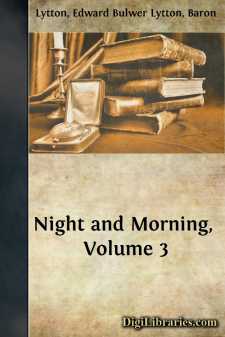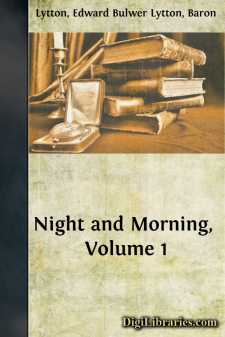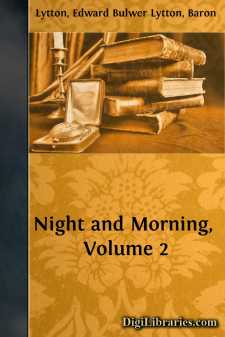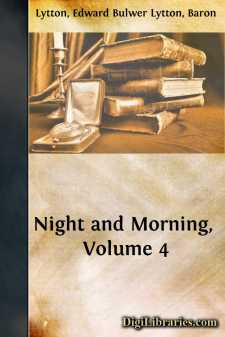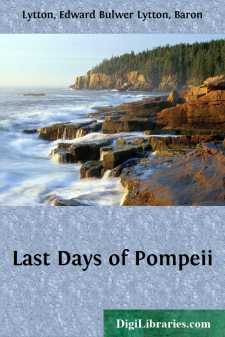Categories
- Antiques & Collectibles 13
- Architecture 36
- Art 48
- Bibles 22
- Biography & Autobiography 813
- Body, Mind & Spirit 142
- Business & Economics 28
- Children's Books 17
- Children's Fiction 14
- Computers 4
- Cooking 94
- Crafts & Hobbies 4
- Drama 346
- Education 46
- Family & Relationships 57
- Fiction 11829
- Games 19
- Gardening 17
- Health & Fitness 34
- History 1377
- House & Home 1
- Humor 147
- Juvenile Fiction 1873
- Juvenile Nonfiction 202
- Language Arts & Disciplines 88
- Law 16
- Literary Collections 686
- Literary Criticism 179
- Mathematics 13
- Medical 41
- Music 40
- Nature 179
- Non-Classifiable 1768
- Performing Arts 7
- Periodicals 1453
- Philosophy 64
- Photography 2
- Poetry 896
- Political Science 203
- Psychology 42
- Reference 154
- Religion 513
- Science 126
- Self-Help 84
- Social Science 81
- Sports & Recreation 34
- Study Aids 3
- Technology & Engineering 59
- Transportation 23
- Travel 463
- True Crime 29
Sort by:
CHAPTER I. "The knight of arts and industry, And his achievements fair." THOMSON'S Castle of Indolence: Explanatory Verse to Canto II. In a popular and respectable, but not very fashionable quartier in Paris, and in the tolerably broad and effective locale of the Rue ——, there might be seen, at the time I now treat of,...
more...
Much has been written by critics, especially by those in Germany (the native land of criticism), upon the important question, whether to please or to instruct should be the end of Fiction—whether a moral purpose is or is not in harmony with the undidactic spirit perceptible in the higher works of the imagination. And the general result of the discussion has been in favour of those who have contended...
more...
CHAPTER I. "Incubo. Look to the cavalier. What ails he? . . . . . Hostess. And in such good clothes, too!" BEAUMONT AND FLETCHER: Love's Pilgrimage. "Theod. I have a brother—there my last hope!. Thus...
more...
CHAPTER I. "O that sweet gleam of sunshine on the lake!" WILSON'S City of the Plague If, reader, you have ever looked through a solar microscope at the monsters in a drop of water, perhaps you have wondered to yourself how things so terrible have been hitherto unknown to you—you have felt a loathing at the limpid element you hitherto deemed so...
more...
CHAPTER I. THE DEATH-BED OF JOHN VERNON.—HIS DYING WORDS.—DESCRIPTION OF HIS DAUGHTER, THE HEROINE.—THE OATH. "Is the night calm, Constance?" "Beautiful! the moon is up." "Open the shutters wider, there. It is a beautiful night. How beautiful! Come hither, my child." The rich moonlight that now shone through the windows streamed on little that it could invest with poetical...
more...
PREFACE. An indistinct recollection of the very pretty little tale, called "The Bellows-Mender," suggested the plot of this Drama. The incidents are, however, greatly altered from those in the tale, and the characters entirely re-cast. Having long had a wish to illustrate certain periods of the French history, so, in the selection of the date in which the scenes of this play are laid, I saw...
more...
Chapter I. THE TWO GENTLEMEN OF POMPEII. 'HO, Diomed, well met! Do you sup with Glaucus to-night?' said a young man of small stature, who wore his tunic in those loose and effeminate folds which proved him to be a gentleman and a coxcomb. 'Alas, no! dear Clodius; he has not invited me,' replied Diomed, a man of portly frame and of middle age. 'By Pollux, a scurvy trick! for...
more...
THE CATASTROPHE. IT happened unfortunately that the mission to ——— was indispensable. The slender accommodation of the tower forbade Gerald the use of his customary attendants, and the neighbouring villagers were too few in number, and too ill provided with weapons, to encounter men cradled in the very lap of danger; moreover, it was requisite, above all things, that no rumour or suspicion of our...
more...
MY DEAR AULDJO,—Permit me, as a memento of the pleasant hours we passed together, and the intimacy we formed by the winding shores and the rosy seas of the old Parthenope, to dedicate to you this romance. It was written in perhaps the happiest period of my literary life,—when success began to brighten upon my labours, and it seemed to me a fine thing to make a name. Reputation, like all...
more...
Chapter 1.I. The Brothers. The celebrated name which forms the title to this work will sufficiently apprise the reader that it is in the earlier half of the fourteenth century that my story opens. It was on a summer evening that two youths might be seen walking beside the banks of the Tiber, not far from that part of its winding course which sweeps by the base of Mount Aventine. The path they had...
more...


